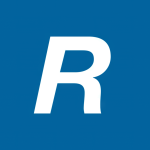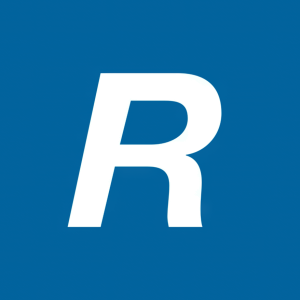Welcome to our dedicated page for Regeneron Pharmaceuticals news (Ticker: REGN), a resource for investors and traders seeking the latest updates and insights on Regeneron Pharmaceuticals stock.
Regeneron Pharmaceuticals (NASDAQ: REGN) is a leading biotechnology innovator developing transformative treatments for serious diseases through advanced platforms like VelociSuite®. This page serves as the definitive source for official company announcements, research milestones, and therapeutic developments.
Investors and medical professionals will find curated updates including FDA approvals, clinical trial results, partnership announcements, and financial reports. Our aggregation ensures timely access to Regeneron's progress in oncology, immunology, rare diseases, and ophthalmic therapies.
All content is sourced directly from Regeneron's communications and verified financial disclosures. Bookmark this page to monitor the company's pipeline advancements, regulatory updates, and strategic collaborations that drive biopharmaceutical innovation.
Regeneron Pharmaceuticals announced that its COVID-19 treatment, REGEN-COV, successfully met its primary trial endpoint by significantly reducing viral load in hospitalized patients who did not require high-flow oxygen. Key findings indicate a 36% reduced risk of death overall, increasing to 56% in seronegative patients by day 29. The FDA is currently reviewing the authorization request for REGEN-COV in hospital settings. The trial showed positive results for all clinical endpoints, even with a smaller patient pool due to slow enrollment.
Regeneron Pharmaceuticals announced positive results from a Phase 3 trial for its COVID-19 treatment, REGEN-COV (casirivimab and imdevimab), published in the New England Journal of Medicine. The trial revealed a 70% reduction in hospitalization or death for high-risk non-hospitalized patients. The drug's safety profile aligns with prior data. As authorized by the FDA, REGEN-COV targets high-risk patients and is part of ongoing government agreements for supply. Regeneron is also pursuing further regulatory submissions for expanded use.
Regeneron Pharmaceuticals (NASDAQ: REGN) announced that its supplemental Biologics License Application for the PD-1 inhibitor Libtayo® has been accepted for priority review by the FDA to treat recurrent or metastatic cervical cancer. The FDA's decision is expected by January 30, 2022. The application is supported by data from a Phase 3 trial involving patients with cervical cancer who had progressed on chemotherapy. Global regulatory submissions, including the European Union, are anticipated by the end of 2021.
On September 21, 2021, Regeneron announced over 30 presentations about Dupixent (dupilumab), focusing on its effectiveness against moderate-to-severe atopic dermatitis in patients as young as six. These results, showcasing the longest data duration for any biologic in adults with the condition, will be discussed at the upcoming WCPD and EADV congresses. Significant findings include improved measures of itch, disease severity, and quality of life for children and adults, as well as insights from extensive real-world evidence.
Regeneron Pharmaceuticals and Sanofi announced positive Phase 3 results for Libtayo in combination with chemotherapy for advanced non-small cell lung cancer (NSCLC). The trial met its overall survival and key secondary endpoints, with a median overall survival of 22 months vs. 13 months for chemotherapy alone. The study included 466 patients with diverse characteristics. Libtayo significantly improved patient-reported outcomes and quality of life measures. The results will support regulatory submissions, with an investor webcast scheduled for September 20, 2021.
Regeneron Pharmaceuticals (NASDAQ: REGN) has secured a new agreement to supply an additional 1.4 million doses of its COVID-19 treatment REGEN-COV to the U.S. government. This brings the total purchased doses to nearly 3 million. Authorized for use in high-risk patients, REGEN-COV has shown to reduce hospitalization or death risk by 70% when administered early. The current agreement, priced at $2,100 per dose, will see deliveries start in September 2021, primarily in Q4 2021. Regeneron will record all net sales associated with this agreement.
Regeneron Pharmaceuticals (NASDAQ: REGN) announced positive Phase 2 trial results for high-dose aflibercept in treating wet age-related macular degeneration (AMD). The trial met its primary safety endpoint, showing no new safety signals. In a cohort of 106 patients, 43.4% in the aflibercept 8 mg group exhibited no retinal fluid compared to 26.4% in the 2 mg EYLEA group. Phase 3 trials for wet AMD and diabetic macular edema are fully recruited, with results anticipated in late 2022, assessing safety and efficacy for up to two years.
Regeneron Pharmaceuticals has received Conditional Marketing Authorization from the UK MHRA for its antibody cocktail, REGEN-COV™, to prevent and treat acute COVID-19 infection. This approval enables distribution across the UK, including Northern Ireland, targeting high-risk patients, particularly those unsuitable for vaccines. Over the past week, Regeneron distributed over 130,000 doses in the U.S. The company submitted the first Biologics License Application to the FDA for REGEN-COV, with the second submission focusing on hospitalized patients expected later this year.
Regeneron Pharmaceuticals reported a remarkable 163% increase in total revenues, reaching $5.14 billion in Q2 2021. This surge includes $2.76 billion from REGEN-COV. Excluding REGEN-COV, revenues grew 22%. Notable product performances include EYLEA, with a 28% increase to $1.42 billion, and Dupixent, which rose 59% to $1.50 billion. GAAP diluted EPS also soared to $27.97. The FDA updated the Emergency Use Authorization for REGEN-COV, and Libtayo's Phase 3 trial in lung cancer showed significant survival benefits.


